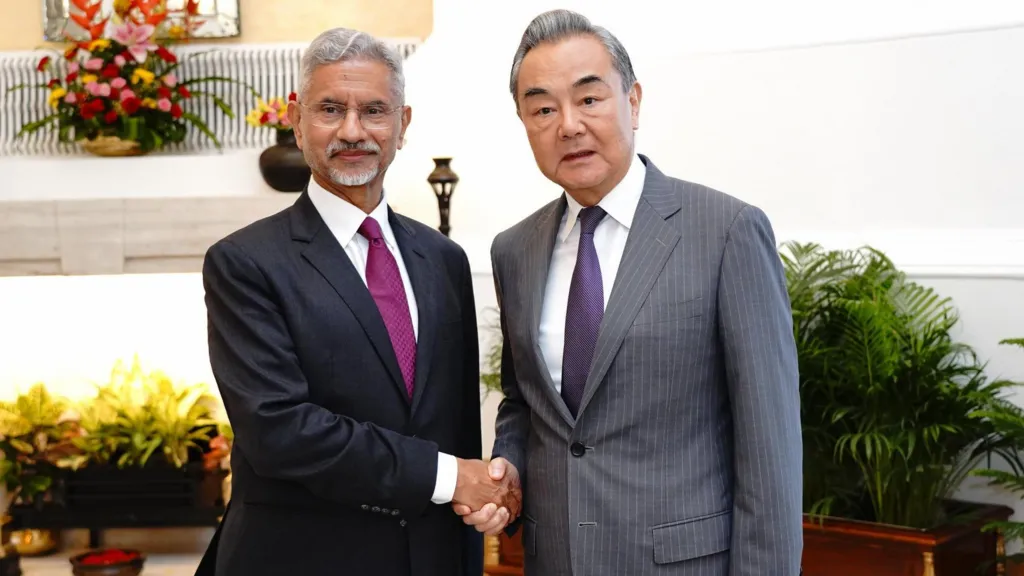
Chinese Foreign Minister Wang Yi urged on Monday that India and China see each other as partners — not adversaries or threats as he arrived in New Delhi for a two-day visit aimed at resetting relations.
A cautious thaw
Wang’s visit — his first high-level diplomatic stop since the 2020 Galwan Valley clashes — signals a cautious thaw between the nuclear-armed neighbours. He met India’s External Affairs Minister S. Jaishankar, only the second such meeting since the deadly Ladakh confrontations that ruptured ties.
“Relations are now on a positive trend towards cooperation,” Wang said ahead of a scheduled meeting with Prime Minister Narendra Modi.
Jaishankar described the talks similarly: India and China are “seeking to move ahead from a difficult period in our ties.” The two ministers discussed a wide range of bilateral issues, from trade and pilgrimages to river data sharing.
Border stability and ongoing negotiations
Wang also met India’s National Security Advisor Ajit Doval to press on with talks over the boundary dispute. “We are happy to share that stability has now been restored at the borders,” Wang told a delegation-level meeting with Doval, adding that the setbacks of recent years “were not in our interest.”
The two countries agreed last October on new patrolling arrangements designed to de-escalate tensions along the disputed Himalayan frontier. Since then both sides have taken steps to normalise ties: China permitted Indian pilgrims access to key sites in the Tibet Autonomous Region this year; India has resumed visa services for Chinese tourists and restarted talks about opening designated border trade passes. There are also reports that direct flights between the countries could resume later this year.
Preparing for high-level meetings
Wang’s Delhi talks are widely seen as groundwork for Prime Minister Modi’s return to China later this month for the Shanghai Cooperation Organisation (SCO) summit — his first visit to Beijing in seven years. Reports indicate Modi may hold bilateral talks with President Xi Jinping, though nothing has been officially confirmed by either side.
If momentum continues, these engagements could mark a pragmatic — if cautious — reset in a relationship that has been strained by years of mistrust. Watch this space: successful follow-through could unlock eased travel, trade and people-to-people contact, but progress will depend on concrete border de-escalation and sustained dialogue.
The geopolitical backdrop
The rapprochement comes amid a shifting geopolitical environment in which India’s global relationships are also evolving. The article references recent tensions between India and the United States, including reported trade penalties and critical commentary from U.S. officials about India’s ties with Russia and China. These developments underline how New Delhi is navigating a complex set of strategic partnerships while seeking its own diplomatic room for manoeuvre.
A shared interest in regional stability
Both Wang and Jaishankar framed the talks in broader terms. Jaishankar said discussions would address global developments and called for “a fair, balanced and multi-polar world order, including a multipolar Asia.” He also stressed the need for “reformed multilateralism” and the imperative of sustaining stability in the global economy.
Whether this latest diplomatic push turns into long-term cooperation will depend on follow-up steps — more meetings, verified de-escalation on the ground, and reciprocal gestures that build trust. For now, both sides are signaling an appetite to move past the recent rupture. The next act — SCO, possible bilateral encounters, and continuing border talks — will show whether words translate into durable policy shifts.
Source: BBC
Post time: Aug-19-2025






